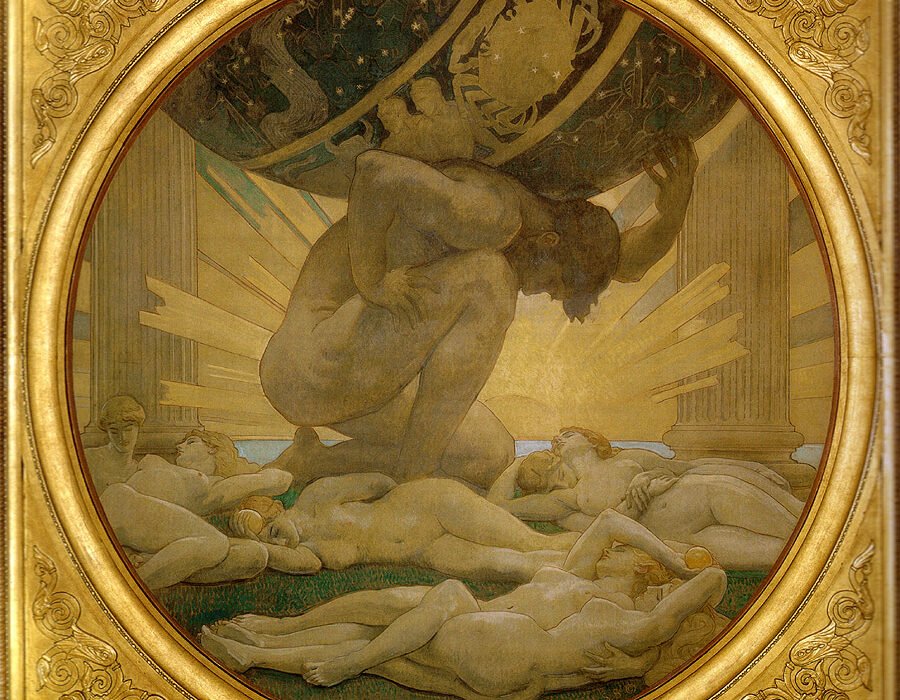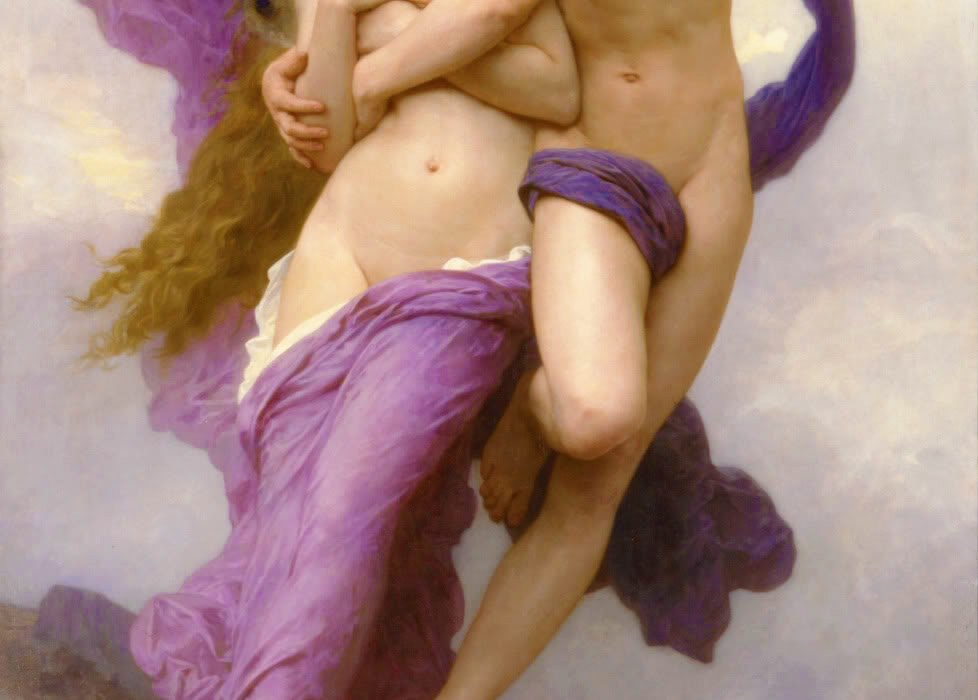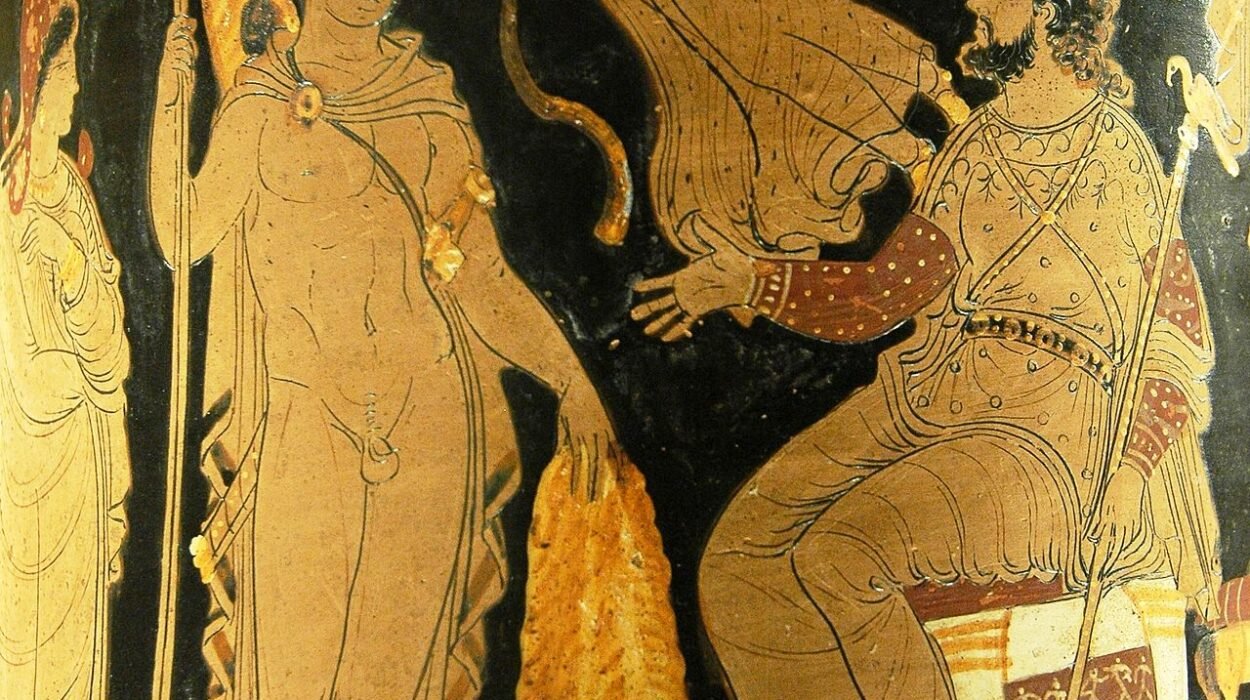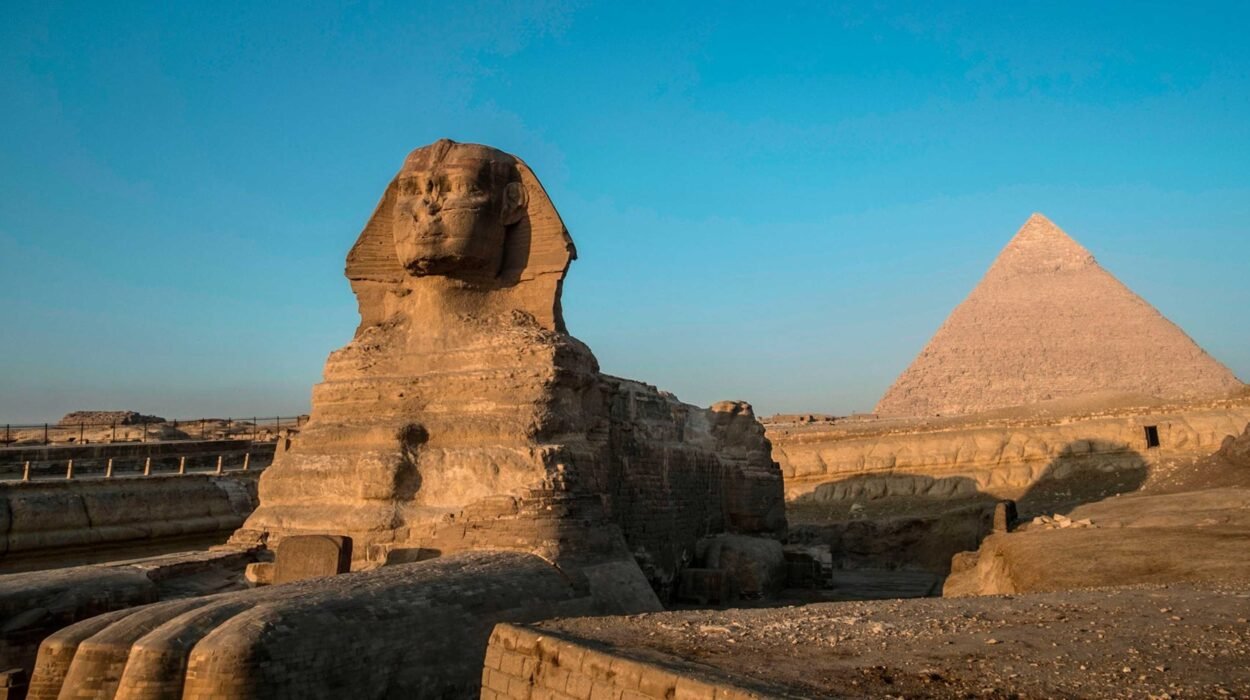In the heart of ancient Greece, where myths were not just stories but living truths shaping culture, values, and identity, one goddess stood as a radiant symbol of intellect, strategy, and power: Athena. She was not merely a figure of worship; she was a beacon of civilization itself, embodying the triumph of reason over chaos and the union of wisdom with strength. For the Greeks, Athena was far more than a deity—she was an ideal, a guiding light for how individuals and societies could balance intellect with courage, restraint with power, and justice with might.
Athena, daughter of the mighty Zeus, emerged fully formed from her father’s head, clad in gleaming armor and carrying a shield that could strike terror into the hearts of gods and mortals alike. From this extraordinary birth story alone, one begins to grasp her essence: she was a goddess born of thought, sprung directly from the mind of the king of the gods. Unlike other Olympians who often represented passions, instincts, or elemental forces, Athena embodied reason, foresight, and calculated strength.
For centuries, she was revered not only as a warrior goddess but also as a protector of cities, a patroness of heroes, and a symbol of ingenuity. Her influence seeped into art, literature, politics, and philosophy, shaping the course of Western civilization in profound and enduring ways.
The Mythic Birth of Athena
The tale of Athena’s birth is among the most dramatic in Greek mythology, reflecting both her uniqueness and her power. It begins with her father, Zeus, who feared a prophecy that a child born of his first wife, Metis, would surpass him. In an act of both paranoia and cunning, Zeus swallowed Metis whole, thinking to absorb her wisdom and prevent the birth of such a child.
But fate has a way of unfolding despite the will of even the king of gods. From within Zeus, the unborn Athena grew, nurtured by Metis’s wisdom. One day, as Zeus was tormented by a splitting headache, he called upon Hephaestus, the god of craftsmanship, to split open his skull with a mighty blow of an axe. From this divine wound, Athena leapt forth, fully armed and radiant in her glory.
The symbolism of this birth cannot be overlooked. Athena was not born of a mother in the conventional sense; instead, she came directly from the mind of Zeus, representing intellect, strategy, and rationality. She was both his daughter and his equal, embodying his power yet also transcending him in wisdom. Her armored emergence also signaled her role as a warrior—yet not one of blind fury, but of calculated, purposeful conflict.
Goddess of Wisdom
Athena’s title as the goddess of wisdom was central to her identity. Unlike the abstract muses or gods of knowledge, Athena represented applied intelligence—wisdom in action. She was the goddess of strategy in war, of justice in governance, of skill in craftsmanship, and of prudence in decision-making.
In Greek thought, wisdom was not mere intellectual capacity but the ability to use knowledge for the greater good. Athena personified this. She was the goddess who guided Odysseus in The Odyssey with clever strategies and cunning disguises, ensuring his survival through wit rather than brute force. She taught humans the crafts of weaving, pottery, agriculture, and navigation, elevating civilization from mere survival to artistry and order.
Unlike her half-brother Apollo, who represented idealized and often abstract wisdom, Athena’s intellect was practical, grounded, and directly tied to human endeavor. She was not a distant deity of lofty thoughts but a goddess deeply invested in human progress, guiding mortals toward ingenuity and self-mastery.
Warrior Without Frenzy
While Athena was a goddess of wisdom, she was equally revered as a goddess of war. Yet here, too, her character diverged from the chaotic and bloodthirsty aspects of battle often embodied by Ares, the god of war. Ares symbolized the brutal, uncontrollable side of conflict—the rage, destruction, and violence that consumed lives without reason. Athena, in stark contrast, represented the disciplined, strategic side of warfare.
She was the general who devised tactics, the leader who fought for justice, and the protector who waged war only when necessary. In her hands, the spear and shield were not tools of slaughter but instruments of defense, order, and justice. She favored heroes who displayed courage tempered with intellect, such as Perseus, Bellerophon, and Heracles. To these mortals, she provided counsel, weapons, and protection, ensuring that their strength was guided by wisdom.
Athena’s duality as both warrior and wise counselor made her unique among the Olympians. She embodied a balance that the Greeks deeply valued: the ability to engage in battle when needed but never to be consumed by it. Her war was not one of conquest for conquest’s sake but of justice, protection, and reasoned necessity.
Patroness of Heroes
Throughout Greek mythology, Athena appears time and again as the guiding force behind legendary heroes. Unlike other gods, who often manipulated or hindered mortals for their own amusement, Athena was consistently a benefactor, helping humans achieve greatness through her wisdom.
To Perseus, she gave a polished shield to defeat the Gorgon Medusa, allowing him to use reflection to outwit the monster’s deadly gaze. To Odysseus, she offered guidance throughout his perilous journey home, disguising him, giving him counsel, and even intervening against hostile gods. To Heracles, she provided the tools and strategies needed to complete his impossible labors.
In each case, Athena’s assistance was not brute intervention but intellectual empowerment. She did not fight the battles for heroes but rather taught them how to win through cunning, courage, and preparation. In this, she reflected the Greek ideal that true heroism is not just strength but the ability to think, adapt, and persevere.
Athena and the City of Athens
Perhaps Athena’s most enduring legacy lies in her role as the patron goddess of Athens, one of the most influential cities in world history. The myth of her contest with Poseidon for the city’s patronage reveals much about her nature and the values of the Athenians themselves.
When the gods debated who should rule over the city, Poseidon struck the earth with his trident, producing a saltwater spring—or in some versions, a horse. Athena, in turn, offered the olive tree, a gift symbolizing peace, sustenance, and prosperity. The citizens judged Athena’s gift to be of greater value, for it provided wood, oil, and food. Thus, she became the protector of Athens, and the olive tree became a sacred symbol of the city.
This myth reflects the Athenians’ pride in wisdom, civilization, and progress. They valued peace and prosperity over raw force, aligning themselves with Athena’s ideals. The Parthenon, her magnificent temple atop the Acropolis, still stands as a testament to her central place in Athenian identity and as one of the most iconic structures of human civilization.
Symbols of Athena
Athena was represented through powerful symbols that encapsulated her essence. Chief among them was the owl, a creature associated with watchfulness and wisdom. The owl, with its ability to see through darkness, became a fitting emblem of the goddess who illuminated ignorance with knowledge.
Her armor, spear, and shield symbolized her martial strength, while the aegis, a magical shield often adorned with the head of Medusa, embodied her power to inspire fear and awe. The olive tree, sacred to her, represented peace, fertility, and prosperity, all of which she bestowed upon her people.
These symbols were not mere ornaments but deep expressions of her character—blending ferocity with foresight, destruction with protection, and war with peace.
Athena’s Role in Greek Tragedy and Philosophy
Athena was not only a mythological figure but also a central presence in Greek literature and philosophy. In Aeschylus’s play The Eumenides, she embodies justice and rationality, establishing the first trial by jury in human history. By mediating between the vengeful Furies and the defendant Orestes, she demonstrates the transition from blood feud to lawful justice—a key moment in the cultural development of Greece.
In philosophy, Athena’s symbolism resonated deeply. Plato and other thinkers often linked her to the triumph of reason over irrationality. She became an emblem of the balanced soul, capable of uniting passion with wisdom, strength with restraint.
Her influence extended beyond religion into civic identity, education, and the very notion of enlightened governance. In this way, Athena was not only a goddess of mythology but also a cultural force shaping ideals of justice, wisdom, and democracy.
Athena’s Paradox: Virgin Goddess of Fertility and Civilization
Athena was known as one of the virgin goddesses, along with Artemis and Hestia. Yet her virginity was not about withdrawal from life but about independence and autonomy. Unlike Hera, who represented marriage, or Aphrodite, who embodied love and desire, Athena’s virginity symbolized her freedom from dependence on male authority. She was complete in herself, embodying both feminine and masculine qualities.
Paradoxically, although she remained a virgin, she was also deeply tied to fertility—not biological fertility, but the fertility of cities, crafts, and knowledge. By granting the olive tree, she nurtured the land; by teaching weaving and crafts, she enriched human life; by guiding politics and law, she cultivated civilization itself. Her virginity, then, was not an absence but a statement of her unique power: she birthed progress, not through the body, but through the mind.
The Enduring Legacy of Athena
The reverence for Athena did not end with the decline of ancient Greek religion. Her image and symbolism lived on through Roman times, where she was worshipped as Minerva, and into the Renaissance, where she became a muse for artists and thinkers. Her statues adorned cities, her stories inspired poets, and her ideals influenced scholars.
In the modern world, Athena remains a potent symbol. Universities and organizations adopt her as a patron of knowledge. Feminists see in her a model of empowered womanhood, embodying strength and independence. Politicians and leaders invoke her wisdom as a guide for justice and governance.
From literature to film, from philosophy to politics, Athena’s essence continues to inspire, reminding humanity of the timeless value of balancing strength with wisdom.
The Goddess Who Mirrors Humanity
Athena endures not simply because she was a goddess of ancient myth, but because she reflects an eternal human aspiration: to unite intellect and courage, to wield power with justice, and to protect civilization with foresight. She is the goddess of the human condition at its best—the drive to create, to govern wisely, to defend justly, and to imagine a better future.
In Athena, we see not only the grandeur of mythology but also a mirror of ourselves. She is the part of us that seeks wisdom in conflict, justice in judgment, and creativity in survival. She is the flame of intellect that refuses to be extinguished, the shield of reason that guards against chaos, and the guiding hand that lifts humanity toward its highest ideals.
And so, across millennia, the goddess who sprang from the head of Zeus still walks among us, not in temples or sacrifices, but in every act of wisdom, in every defense of justice, and in every vision of a world guided by reason and light.






